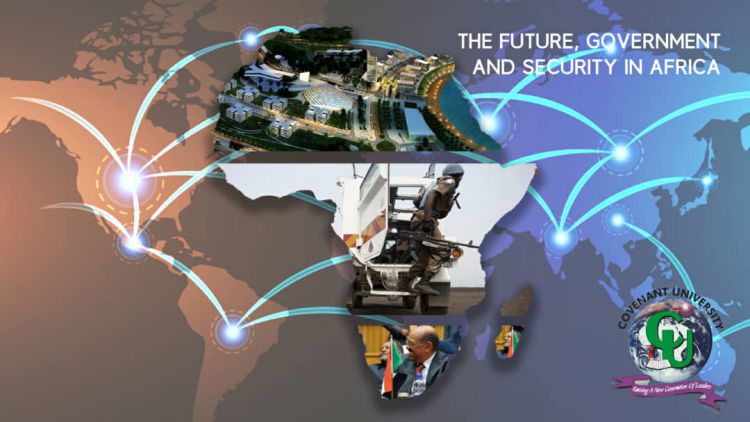The Future, Government and Security in Africa

Sponsored by

Sponsored by

Conflict and Terrorism Research
- The discourse of terror threats: Assessing online written threats by Nigerian terrorist groups
- Be Careful Where You Smile: Culture Shapes Judgments of Intelligence and Honesty of Smiling Individuals
- Activism, campaigning and political discourse on Twitter:
- A nation divided against itself: Biafra and the conflicting online protest discourses.
- SMS & civil unrest..
- Digital discourse of radical movements: exploring stance and positioning in Nigerian
- militant groups’ online discourses
- Exploring Language Use in Nigerian Democracy.
- The discourse of terror threats: assessing online written threats by Nigerian terrorist
- Studies in Conflict & Terrorism
- On terrorist attacks in Nigeria: Stance and engagement in conversations on
- Communication and the Public
- Communication and the Public
The discourse of terror threats: Assessing online written threats by Nigerian terrorist groups
ABSTRACT: Online threats by terrorist groups are viewed as a special type of discourse that sends menacing explicit messages, expressing not only an intention to cause a direct physical harm to the threatened, but also to show a commitment to destroy public property or cause a change of system or government. This study applies critical discourse analysis with some insights from pragmatics to analyze the discourse-pragmatic contents of terror threats by two terrorist groups in Nigeria—Boko Haram and Ansaru. Explicit and implied threats are examined from seven online publications by these groups written between 2009 and 2012. This study shows that terror threats by Nigerian terrorist groups are intertextually and ideologically related to threats associated with Al Qaeda and global jihad, which also goes further to establish their strong link and influence with other terror groups around the world. The findings also show that the structure of terror threats is significantly different from the conventional formula for verbal threats.
ABSTRACT: Smiling individuals are usually perceived more favorably than non-smiling ones—they are judged as happier, more attractive, competent, and friendly. These seemingly clear and obvious consequences of smiling are assumed to be culturally universal, however, most of the psychological research is carried out in WEIRD societies (Western, Educated, Industrialized, Rich, and Democratic) and the influence of culture on social perception of nonverbal behavior is still understudied. Here we show that a smiling individual may be judged as less intelligent than the same non-smiling individual in cultures low on the GLOBE’s uncertainty avoidance dimension. Furthermore, we show that corruption at the societal level may undermine the prosocial perception of smiling—in societies with high corruption indicators, trust toward smiling individuals is reduced. This research fosters understanding of the cultural framework surrounding nonverbal communication processes and reveals that in some cultures smiling may lead to negative attributions.
A nation divided against itself: Biafra and the conflicting online protest discourses.
ABSTRACT: This research analyses media and online discourses produced by the Indigenous People of Biafra (IPOB), a Nigerian separatist/secessionist group that seeks a referendum for the independence of the Igbo ethnic group of Nigeria. The research examines discourse structures, such as language use that clearly or implicitly produces propositions of conflict and war, tribalism and hate-speech. Discursive strategies such as labeling, exaggeration, metaphor and contradiction applied by the group to produce ideological discourses of outrage are also analyzed. Moreover, conflicting discourses produced by the Igbo politicians and factions of IPOB and other Biafra campaign groups are analyzed in terms of their political implications to the overall self-determination efforts of the Biafra nation. The study concludes that the pragmatic implications of discourses that reflect opposing views, as well as varied ideological perspectives by group members, suggest that Biafra is a nation divided against itself and are a people incapable of the separate nation that they seek.
ABSTRACT: Online threats by terrorist groups are viewed as a special type of discourse that sends menacing explicit messages, expressing not only an intention to cause a direct physical harm to the threatened, but also to show a commitment to destroy public property or cause a change of system or government. This study applies critical discourse analysis with some insights from pragmatics to analyze the discourse-pragmatic contents of terror threats by two terrorist groups in Nigeria—Boko Haram and Ansaru. Explicit and implied threats are examined from seven online publications by these groups written between 2009 and 2012. This study shows that terror threats by Nigerian terrorist groups are intertextually and ideologically related to threats associated with Al Qaeda and global jihad, which also goes further to establish their strong link and influence with other terror groups around the world. The findings also show that the structure of terror threats is significantly different from the conventional formula for verbal threats.
Africa’s Critical Infrastructure Protection and Cyber Security Research
Cyber resilience preparedness and Africa's top twelve economies
ABSTRACT: This paper proposes the Cyber Resilience Preparedness Index for monitoring and comparing the cyber resilience of Africa's top-12 emerging economies. The index covers five critical areas that incorporate a total of 24 indicators derived or adapted from the International Telecommunication Union's 2014 Cyber Wellness Profiles, a Depository Trust and Clearing Corporation white paper on global cyber risk and the well-known Cyber Readiness Index. The final Cyber Resilience Preparedness Index is a simple average of the five area (sub-index) scores; the score for each sub-index is also the simple average of the scores of the composing indicators. This computation assumes that all the sub-indices contribute equally to national cyber resilience preparedness. The results indicate that six countries, namely Sudan, Ghana, Libya, Zimbabwe, Algeria, and Angola, are at risk to compromises of their critical systems. In contrast, Egypt tops the chart of six countries, Egypt, Kenya, Nigeria, Tunisia, Morocco, and South Africa, that demonstrate preparedness against compromises to their critical systems, industries, and classified documents, as well as against industrial espionage. This study also argues that assessments of the progress of Africa's fastest-growing economies should be conducted periodically using evolving evaluation criteria.